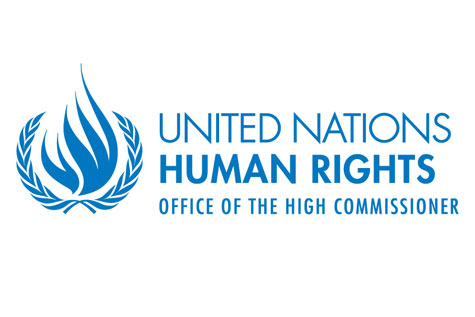Libyan authorities must take decisive steps to provide justice and redress to the vast number of victims suffering from longstanding violations of human rights and international humanitarian law, the UN Independent Fact-Finding Mission (FFM) on Libya said Sunday after its final visit to the country.
Victims and their families are impatient for authorities to provide timely information on investigations and ensure perpetrators are held accountable.
“The families of these victims have waited far too long for justice,” said Mohamed Auajjar, Chair of the FFM, which comprises fellow rights experts Tracy Robinson and Chaloka Beyani. “Libyan authorities owe it to them to share information about their loved ones, to meet them and give them answers. Silence is unacceptable.”
“We, too, have asked repeatedly for answers to the status of multiple investigations concerning serious human rights violations, but to date there has been no satisfactory response,” Auajjar said.
During the 23 to 26 January mission to Tripoli, the FFM’s experts met with victims and victims’ representatives who provided testimony related to extrajudicial killings, torture, arbitrary detention, enforced disappearances, human trafficking, internal displacement, the existence of mass graves and morgues containing corpses that families do not have access to.
Many victims and victims’ representatives traveled from Benghazi, Sirte, Murzuk, Sebha, and Misrata to meet the mission. The mission was supposed to visit Sabha to meet the victims, but it was not allowed by the local authorities despite repeated requests.
The Experts regretted that they were unable to meet with the Attorney General to receive information on the many cases narrated by victims which are under his mandate to investigate.
“The state authorities we met told us of their efforts to strengthen the rule of law, but these efforts have not produced justice for the victims and their families,” Robinson said. “You could see the profound loss when victims spoke to us. Their anxious desire for justice has been unmet, in many cases for years.”
The Experts also regretted that authorities failed to grant access to prisons and detention centers across the country, despite repeated requests.
Beyani said that “arbitrary detention in Libya has become pervasive as a tool of political repression and control, which explains why thousands of persons are deprived of their liberty, often in poor conditions, without due process or access to justice.”
In the FFM’s meetings with officials, the FFM experts joined the call of other UN experts for the immediate release of Iftikhar Boudra, who was detained in Benghazi four years ago following critical comments she made on social media about militarization in the East. Boudra is reportedly critically ill, and her family says it has not been allowed to visit her for eight months.
The FFM thanked the Libyan Ministry for Foreign Affairs and the Libyan Permanent Mission to the UN in Geneva for facilitating its visit, which included meetings with the Chief of General Staff of the Libyan Armed Forces, the Ministers of Foreign Affairs and Justice, the President of the Supreme Judicial Council, deputy speaker and members of the House of Representatives, and officials from the High National Electoral Commission. The FFM welcomed the invitation from high-ranking Government officials to continue its investigations and its cooperation with the State of Libya.
The FFM was established by the Human Rights Council in June 2020 with a mandate to investigate alleged violations and abuses of international human rights law and international humanitarian law committed in Libya since 2016.










